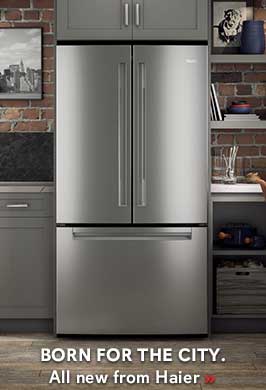.jpg)
Induction vs Electric vs Gas: Which Cooktop Should I Buy?
November 28, 2023
If you're exploring different cooktop options, you've likely seen how much they've evolved. Nowadays, there's a wide variety to match different cooking styles and preferences. Choosing between induction, electric, or gas cooktops isn't just about looks; it's about how well they work, your cooking style, and what you need from them.
In this guide, we'll break down the three main types available and highlight what makes each one great. Our experts at Standard Appliances will also provide you with some criteria you should consider when choosing a cooktop.
.jpg)
Understanding Electric Cooktops
What Is an Electric Cooktop?
Electric cooktops utilize electricity to generate heat through coils or smooth-top surfaces. These cooktops are known for their consistent heating and easy cleaning. They come in various designs, including coil-based or ceramic glass top variants.
Advantages of Electric Cooktops
Electric cooktops are popular for their ability to distribute heat evenly across the cooking surface. The consistent and uniform heat output of electric cooktops makes them suitable for simmering and low-heat cooking methods. They maintain lower temperatures without fluctuations, allowing cooks to simmer soups, sauces, or stews for extended periods.
Electric cooktops often feature smooth surfaces, typically made of ceramic glass or solid electric coils, making them easy to clean and maintain. The flat and sleek design eliminates crevices where food particles can accumulate, simplifying the cleaning process.
Finally, these cooktops often come at a relatively lower price point compared to induction or gas alternatives. This affordability makes them an attractive option for those on a budget or looking for cost-effective kitchen appliance solutions.
Insight into Induction Cooktops
What Is an Induction Cooktop?
Induction cooktops use electromagnetic technology to directly heat pots and pans, making them incredibly efficient. They offer precise temperature control and rapid heating, relying on magnetic fields rather than direct heat.

The key to successfully cooking with induction is ensuring your cookware is made of ferrous material, such as cast iron or magnetic stainless steel. These materials respond to the magnetic field generated by the induction cooktop. Non-magnetic materials like aluminum, copper, or glass won't work on induction cooktops unless they have a magnetic bottom or an induction-compatible layer.
Advantages of Induction Cooktops
One of the main features of induction cooktops is their ability to heat up rapidly. The electromagnetic technology employed by induction cooktops allows for almost instant heating. Once the compatible cookware is placed over the cooking zone, the heat transfer begins immediately.
If safety is a priority for you, then induction cooktops offer several safety advantages. As induction cooktops rely on the presence of compatible cookware to generate heat, they do not produce heat on their surface without it.
Exploring Gas Cooktops
Understanding Gas Cooktops
Gas cooktops use natural gas or propane to produce a flame. They offer immediate heat control and are preferred by chefs for their responsiveness in adjusting temperatures.
Advantages of Gas Cooktops
Gas cooktops are also good at providing instant heat. As soon as the burner is on, the flame generates immediate heat, allowing for quick temperature adjustments. This rapid response enables cooks to have precise control over the cooking process.
Additionally, some people prefer having the visible flame that gas cooktops offer. The sight of the flame allows cooks to visually gauge the intensity of the heat, aiding in precise control over the cooking process. This flame helps in understanding the level of heat being applied to the cookware, offering a hands-on approach to cooking.
Finally, most professional chefs often prefer gas cooktops for their reliability in maintaining a consistent and predictable cooking environment, allowing for precise execution of cooking techniques.
What Type of Cooktop Should I Buy?
Choosing the ideal cooktop involves considering various factors like cooking style, safety preferences, energy efficiency, kitchen layout, and cost of investment. Also, factors such as responsiveness, safety features, and compatibility with cookware will help you in making an informed decision.
Cooking Style and Habits
Consider your cooking style and habits. If you often engage in delicate cooking methods like simmering or require precise temperature control for culinary endeavors, an induction cooktop might be the perfect fit. Its rapid heating and precise temperature adjustments cater to various cooking techniques.
Conversely, if you prefer the tactile experience of an open flame or frequently cook dishes that demand immediate temperature changes, a gas cooktop could be your best choice. Gas cooktops offer instantaneous heat adjustments, allowing for quick and precise control over the cooking process.
Safety Preferences
If safety is a primary concern, particularly if there are young children or elderly individuals at home, induction cooktops offer an advantage. They only generate heat when compatible cookware is detected, reducing the risk of accidental burns.
Gas cooktops, on the other hand, require an open flame, which poses a higher risk, especially in households with curious children or pets.
Electric cooktops have a smooth surface, minimizing the risk of spills causing immediate burns.
Energy Efficiency
Energy efficiency plays a crucial role, not only in reducing utility bills but also in minimizing environmental impact. Induction cooktops are highly efficient, as they heat cookware directly without wasting excess heat. They are often considered the most energy-efficient option.
Electric cooktops are relatively efficient but may consume slightly more energy than induction models. Gas cooktops tend to lose more heat during operation, making them less energy-efficient compared to induction or electric models.
Kitchen Layout and Compatibility
Consider the layout of your kitchen. Gas cooktops require a gas line connection, which might not be a possibility in all kitchens. Electric cooktops, however, only need an electrical outlet, offering more flexibility in terms of installation.
Compatibility with existing cookware is also crucial. Induction cooktops require magnetic-compatible cookware for optimal performance. Ensuring your current pots and pans are compatible or being prepared to invest in new cookware should be considered.
Affordability
Electric cooktops often stand out as a more budget-friendly option compared to their counterparts. Their relatively lower initial cost makes them an attractive choice to those who are trying to save some money.
The cost-effectiveness extends beyond the purchase price. Electric cooktops tend to have simpler maintenance requirements, potentially reducing long-term maintenance costs. Their ease of cleaning and fewer components often result in lower maintenance expenses compared to induction or gas cooktops.
.jpg)
Choosing the Ideal Cooktop at Standard
The selection between electric, induction, or gas cooktops ultimately depends on personal preferences, cooking habits, and desired kitchen experiences. If you have any further questions about the ideal cooktop for yourself, do not hesitate to contact our appliance experts at Standard. Additionally, consider visiting one of our appliance store locations in Beaverton, Bend, or Portland, OR. Our team is eager to answer your questions and help you find the perfect appliance for your needs.
At Standard, we offer a wide variety of kitchen and home appliances including refrigerators, dishwashers, cooking appliances, laundry appliances, and more. What are you waiting for? Visit us today or shop online!
Related Reading:
- 5 Must-Have Kitchen Appliances For The Modern Home Chef
Frequently Asked Questions About Cooktops
Are induction cooktops more expensive than electric or gas cooktops?
Induction cooktops can generally be pricier upfront compared to electric or gas stovetops. Their advanced technology and efficiency contribute to the initial higher cost.
What happens if water falls on an induction stove?
If water spills or drips onto an induction cooktop, it typically doesn’t affect its functionality or safety.
Do I need special cookware for induction cooktops?
Yes, induction cooktops require cookware made of ferrous materials, such as cast iron or magnetic stainless steel. Non-magnetic cookware won't heat up on an induction cooktop.
Can I use cast iron on induction?
Yes, cast iron cookware works perfectly on induction cooktops. Its magnetic properties make it ideal for induction cooking, ensuring effective heat transfer.
Do gas cooktops consume more energy compared to electric or induction?
Gas cooktops are typically less energy-efficient than electric or induction cooktops. They might waste more heat during operation, contributing to higher energy consumption.













